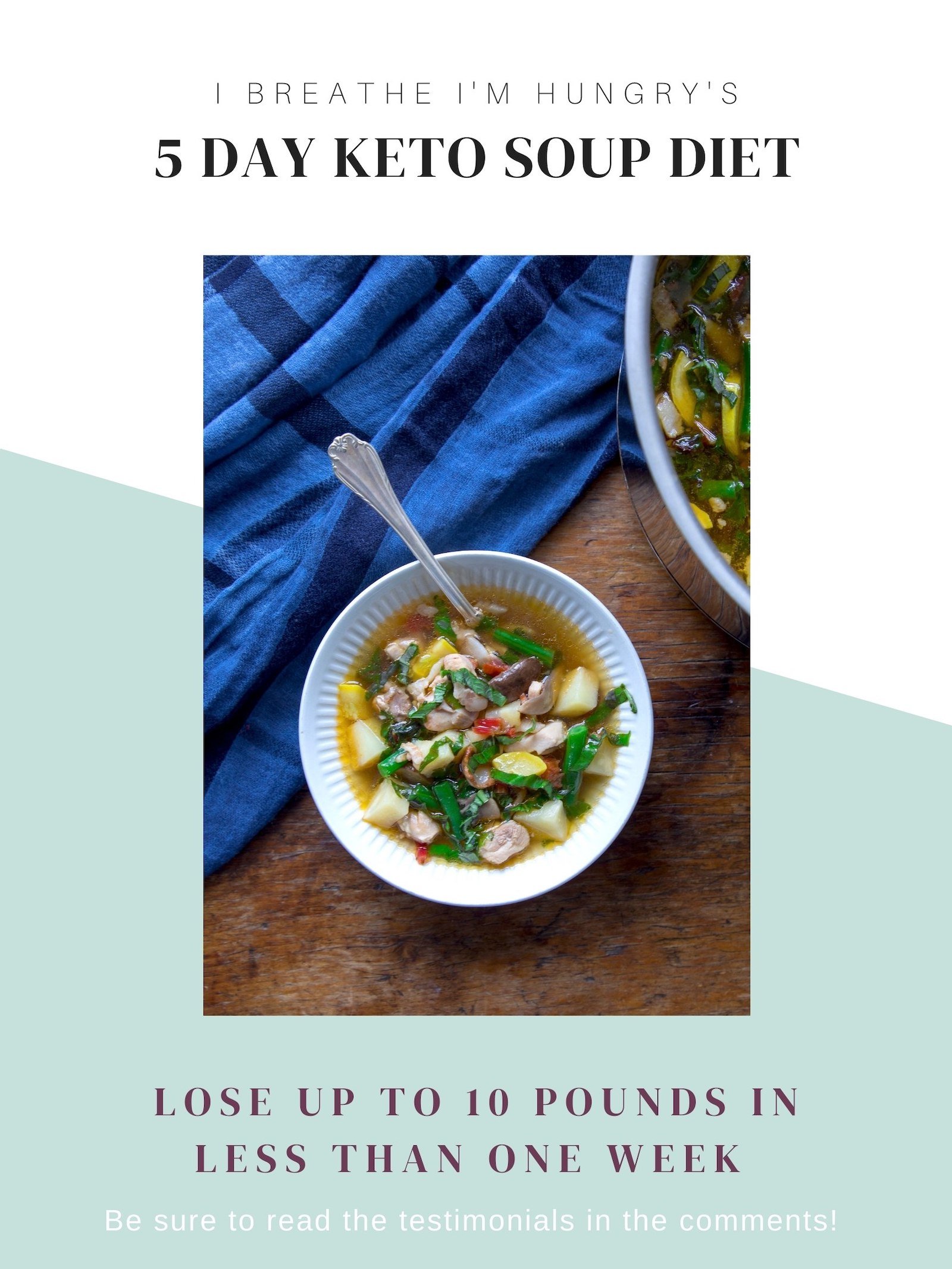Weight Loss Foods : Discover the Powerful Foods that Help Shed Pounds
Weight loss foods are essential for shedding pounds and achieving a healthier physique. Incorporating these foods into your diet can accelerate your weight loss journey and improve overall well-being.
The Science Behind Weight Loss
Understanding the Basics of Weight Loss is crucial when it comes to achieving your fitness goals. It’s important to know that weight loss is not just about eating less and exercising more. The science behind weight loss is complex and involves various factors.
Weight loss occurs when the body burns more calories than it consumes. This creates a calorie deficit, forcing the body to use stored fat as an energy source. To achieve this, it’s necessary to focus on a well-balanced diet that includes Weight Loss Foods.
Weight Loss Foods are those that are low in calories but high in nutrients, such as fruits, vegetables, lean proteins, and whole grains. These foods provide essential vitamins, minerals, and fiber while keeping you full and satisfied.
In addition to choosing the right foods, portion control plays a significant role in weight loss. By managing portion sizes and practicing mindful eating, you can prevent overeating and promote weight loss.
It’s important to note that weight loss is a gradual process and requires patience and consistency. Remember to combine a healthy diet with regular physical activity for the best results.
Essential Nutrients For Weight Loss
html
Protein: The Building Block for Weight Loss
Protein is an essential nutrient for weight loss as it plays a crucial role in building and repairing tissues, and it can also help boost metabolism and reduce appetite. Including protein-rich foods in your diet such as lean meats, fish, eggs, legumes, and dairy products can aid in weight management. Protein can provide a feeling of fullness, which can prevent overeating and, ultimately, aid in weight loss.
Fiber: The Secret Weapon for Shedding Pounds
Fiber is another important nutrient for weight loss. It helps to keep you feeling full for longer periods, thus reducing the chances of overeating. Foods rich in fiber, such as fruits, vegetables, whole grains, and legumes, not only aid in weight loss but also contribute to overall good health. Incorporating fiber-rich foods into your diet can improve digestion, regulate blood sugar levels, and promote a healthy gut, offering significant benefits in your weight loss journey.
Healthy Fats: Fuelling Weight Loss
Contrary to popular belief, healthy fats are crucial for weight loss. Including sources of unsaturated fats in your diet, such as avocados, nuts, seeds, and fatty fish, can promote satiety, enhance nutrient absorption, and support hormone production. While fats are higher in calories compared to proteins and carbohydrates, they are essential for providing energy, maintaining cell structure, and aiding in brain function. Striking a balance between healthy fats and other nutrients is important for achieving and sustaining weight loss.
Superfoods For Weight Loss
html
Eating lean meats is an excellent way to incorporate high-quality protein into your weight loss journey. Protein-rich foods help to boost metabolism, increase satiety, and support muscle growth and repair. Opt for lean cuts of meat such as skinless chicken, turkey breast, and pork tenderloin. These options are lower in fat and calories while still providing essential nutrients. Additionally, lean meats are packed with essential amino acids that contribute to the building and maintenance of muscles.
Leafy greens such as spinach, kale, and Swiss chard are low in calories and high in nutrients, making them a perfect addition to your weight loss diet. They are rich in vitamins, minerals, and antioxidants that help to promote overall health. Leafy greens are also high in fiber, which aids in digestion and promotes feelings of fullness. Including a variety of leafy greens in your meals can help you reduce calorie intake without sacrificing essential nutrients.
Berries, including strawberries, blueberries, raspberries, and blackberries, are packed with antioxidants that help to protect cells from damage and promote overall well-being. They are also low in calories and high in fiber, making them a delicious and satisfying treat for weight loss. Berries are a great source of vitamins, minerals, and phytochemicals that can support your weight loss goals.
Nuts and seeds are healthy and satisfying snacks that can aid in weight loss. They are nutrient-dense, providing essential fatty acids, protein, fiber, vitamins, and minerals. Aim for moderate portions of nuts such as almonds, walnuts, and pistachios, as well as seeds like chia seeds and flaxseeds. These snacks are convenient, portable, and can help curb cravings while providing essential nutrients.
Whole grains such as quinoa, brown rice, oats, and whole wheat bread are excellent sources of complex carbohydrates and fiber that can help fuel your metabolism and keep you feeling full. They are also rich in vitamins, minerals, and antioxidants. Replacing refined grains with whole grains in your diet can contribute to weight loss and support overall health.
Greek yogurt is a creamy and delicious superfood that can be a valuable addition to your weight loss journey. It is high in protein and low in fat and calories, making it a satisfying and nutritious snack. Greek yogurt is also a great source of calcium, probiotics, and essential vitamins and minerals. Adding Greek yogurt to your diet can help you feel fuller for longer and support your weight loss goals.
Incorporating Weight Loss Foods Into Your Diet
When striving for weight loss, it is crucial to make the right food choices. Incorporating weight loss foods into your diet can aid in your quest for a healthier body. Meal prepping is an essential step to ensure that you have the necessary ingredients on hand when hunger strikes. By preparing your meals in advance, you can avoid unhealthy impulsive eating choices. Explore delicious and nutritious weight loss recipes that feature an array of whole foods. These recipes provide both flavor and sustenance, keeping you satisfied throughout the day. Finally, smart snacking can make a significant difference in your weight loss journey. Select snacks that are low in calories but high in nutritional value, such as fresh fruits, vegetables, or lightly salted nuts. By incorporating these simple tips, you can create a well-rounded diet that supports your weight loss goals.
Boosting Weight Loss With Lifestyle Changes
Eating a healthy, balanced diet is key to effective weight loss. Incorporating certain foods into your daily meals can help accelerate your progress. Protein-rich foods like lean meats, fish, eggs, and legumes are excellent for boosting metabolism and promoting a feeling of fullness. Fiber-rich foods such as vegetables, fruits, whole grains, and nuts can aid digestion and prevent overeating. Healthy fats found in avocado, olive oil, and nuts can help control cravings and promote satiety. Drinking plenty of water is essential for hydration, digestion, and metabolism. It is also advisable to limit intake of processed foods, sugary drinks, and excess salt. Additionally, regular physical activity is crucial for weight loss. Engaging in aerobic exercises like running, swimming, or cycling can increase calorie burn and improve cardiovascular health. Strength training exercises can help build lean muscle mass and increase metabolism. Managing stress through activities like meditation, yoga, or deep breathing can prevent emotional eating and support weight loss efforts. Lastly, getting enough sleep is vital for weight loss as it helps regulate hunger hormones and reduces cravings. Prioritizing these lifestyle changes can greatly enhance your weight loss journey.

Credit: www.ibreatheimhungry.com
Creating A Long-term Weight Loss Plan
Creating a long-term weight loss plan is crucial for achieving sustainable results. Setting realistic goals is the first step towards success. Make sure to set targets that are attainable and measurable, such as losing a certain amount of pounds per week or month. Tracking progress is equally important as it helps you stay accountable and motivated. Regularly monitor your weight through measurements and keep a record of your achievements. This will enable you to identify patterns and adjust your plan accordingly.
However, maintaining motivation can be challenging at times. It’s essential to overcome obstacles and stay committed to your weight loss journey. Find strategies to keep yourself motivated, whether it’s joining a support group, rewarding yourself for small milestones, or seeking inspiration from success stories. Remember that weight loss is not just a short-term goal; it’s a lifelong commitment to health and well-being.
| Setting Realistic Goals for Weight Loss Success |
| – Set attainable and measurable targets |
| – Ensure goals are specific and time-bound |
| Tracking Progress: The Importance of Monitoring Weight Loss |
| – Regularly measure and record your weight |
| – Analyze patterns and make adjustments |
| Maintaining Motivation: Overcoming Challenges for Continuous Weight Loss |
| – Join a support group or find an accountability partner |
| – Reward yourself for reaching milestones |
| – Seek inspiration from success stories |
Frequently Asked Questions For Weight Loss Foods
What Foods Help Burn Belly Fat?
Foods that can help burn belly fat include lean proteins, whole grains, fruits, and vegetables. These foods contribute to weight loss and a reduction in abdominal fat. Incorporating them into your diet can provide you with essential nutrients while promoting a healthier body composition.
How To Lose 20 Pounds In A Month?
To lose 20 pounds in a month, follow these steps: – Create a calorie deficit by eating fewer calories and increasing physical activity. – Focus on a balanced diet with plenty of fruits, vegetables, lean proteins, and whole grains. – Stay hydrated and avoid sugary drinks.
– Incorporate regular exercise with a mix of cardio and strength training. – Get enough sleep and manage stress levels for overall wellbeing.
What Three Foods Make You Lose Weight?
Eating lean protein, high-fiber foods, and fruits and vegetables can help you lose weight. These foods keep you full, boost metabolism, and provide essential nutrients for a healthy weight loss journey.
What Are Some Weight Loss Foods That Are Low In Calories?
Some weight loss foods that are low in calories include leafy greens, lean proteins like chicken and fish, whole grains, fruits like berries, and non-fat dairy products. These foods are nutrient-dense and can help you feel full while consuming fewer calories.
Conclusion
To sum up, incorporating weight loss foods into your diet can significantly contribute to your weight loss journey. Choosing nutrient-dense, low-calorie options like fruits, vegetables, lean proteins, and whole grains can help fuel your body, curb cravings, and promote overall well-being.
By making conscious choices and maintaining a balanced approach to eating, you can achieve your weight loss goals in a sustainable and healthy manner. Remember, consistency and lifestyle modifications are key. Start making these small changes today and embark on a path to a healthier you.
